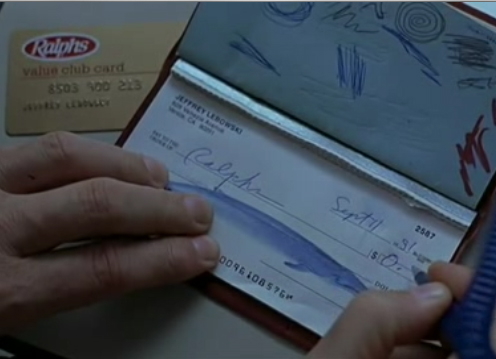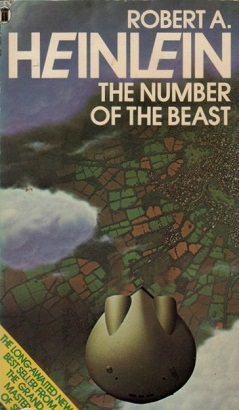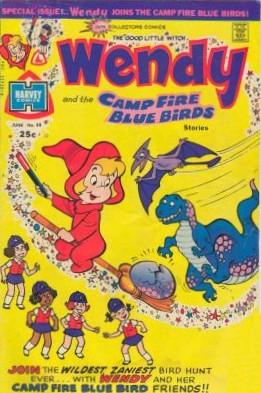brekin wrote:Attack Ships On Fire wrote:
If Sue Storm divorces Reed Richards in next month's "Fantastic Four" and Reed becomes an asshole to her does that invalidate that he was a hero to you when you were a kid?
&
Well to be fair to Tim Burton and the new "OZ", Willy Wonka and the Wizard aren't eating Charlie and Dorothy.
Well see that's the thing, were talking orders of magnitude here.
Before I dive in and comment on your main points, the comparison I was making to Tim Burton/Oz was made in reference to Four Points drawing attention to the new "Charlie and the Chocolate Factory" and "Oz" shows and asking "What is next? ET eating host family?" I think there are miles of difference between Burton's "Charlie" and watching a remake of "ET" where he eats his host family!
brekin wrote: You can't turn on and off points of no return. Reed Richards becoming a snarky divorcee and Peter Parker eating his parents are worlds apart.
I totally agree that they are, and I respectfully disagree with you and say that you can have your cake and eat it too when it comes to enjoying comics where the heroes grow up, or turn darker, and enjoying comics where they remain as pure in intent as they were when they were first created. It's happening right now with Marvel as witness in their "Ultimate Spider-Man" and regular "Spider-Man" comic books, and in What If comics like "Marvel Zombies". Marvel has embraced the idea of parallel universes so you can have a mature themed Spider-Man story and a mainstream, for-all-ages Spider-Man book. You simply pay for what you want to read. There are even comics intended for younger readers (under 7) and I bought a few myself last week. One was for "Fantastic Four" and it was written by Steve Niles, the guy that created "30 Days of Night".
That's what I meant by these superheroes are like taffy. You could have a book where Spider-Man was a racist supremacist and wouldn't save any people of color and explore the dichotomy that Spider-Man's biggest fan at the Daily Bugle was a black man (Robbie Robertson) and you could also continue to publish the Spider-Man books where Peter Parker is the well-adjusted non-racist guy we love. I'm sure Marvel would take huge heat over it and I'm not saying that there's more to a racist Spider-man story than that (this idea is off the top of my head) but it serves as an extreme example. "Marvel Zombies" is another extreme example but one that is more -- forgive me -- fleshed out as a story. Ahem.
brekin wrote:You've made some very good points, and I recognize the need to bring some diversity into the sometimes ghetto of superhero archetypes.
Thank you and if you know any editors for Marvel or DC Comics, I grovel before thee.
brekin wrote:But I also have to respectfully disagree that we stop seeing a hero as a person. You know people relate to Superman not only because of his abilities but also because of his Clark Kent side, and it's almost pat that every Super hero struggles with his "normalness" or "flaws". I think people are drawn to the transformative element of super heroes, because that is what they see in themselves, that in the right circumstances they to could step up and do the right thing. Reed Richards becoming a shithead could actually be endearing, because we've all been shitheads before.
I'm glad that you brought up Superman/Clark Kent as an example because I would like to use him to demonstrate that I *do* believe we, the average comic book reader, stop seeing the hero as a person.
I don't think enough attention has been given by DC Comics to the Clark persona because no one knows what to do with aside from use it as a secret identity. In the 30s through the 60s I think newspaper reporters had more of a "coolness" factor to the job, kind of like how airline pilots were treated in Spielberg's "Catch Me If You Can". It also helped propel Clark and Lois to get into action; they would (or Lois would go solo) investigate some crime or story and fall into trouble that required Superman's help. He'd show up and save the day and that was the end. Aside from that use Clark Kent existed to serve as a comedic foil sometimes. That role was amplified in the Christopher Reeve films. Currently Kent doesn't do much at all in the comic book continuity; he's married to Lois (who now knows his secret) and still working at the Daily Planet. And it will never go further than that.
You said: 'You know people relate to Superman not only because of his abilities but also because of his Clark Kent side, and it's almost pat that every Super hero struggles with his "normalness" or "flaws" ' Tell me, what flaws does Clark have? If you look more at the character through the Christopher Reeve interpretation he's a bumbler. That is the only major flaw that I can find throughout 60+ years of Superman storytelling and really, it's not enough. It's been so overused that I'm pretty certain that the new team that made "Superman Returns" practically threw the bumbling Clark out the window because it's been done to death and it's not funny anymore.
Normalness? Young Clark's life is practically Norman Rockwell. He is raised to be a good, moral son by two older farmsfolk. We never see him rebel against his parents during his teenage years. We never see his parents worry as to what might happen if he acquires a disease or falls ill or gravely injures himself and they need major medical attention to save their son's life. We never see Clark become an adolescent questioning his role (or his parents' roles) in America or the world. Did he enjoy watching rich people like Lex Luthor get away with being more powerful and better able to enjoy their lives than his folks who needed to count every penny? What was it like for him wondering "If I ever kiss a girl, will I kill her with my strength?" or wondering how would he ever have sexual relations. Why didn't we see Clark go to Smallville high and learn about things like the World Wars or the Cold War or any of the thousand other wars and ask "Why should I do something about that?" In short, Clark Kent exists as a one-dimensional stereotype to the reader -- there's nothing "normal" about it -- yet somehow he's a well-adjusted married man and the perfect child. And the Normal Rockwell paintings are fantasy and we all know it; fantasy with a dollop of ice cream on top and good to look at and eat up, but fantasy none-the-less.
You know what would make a great DC Elseworlds comic? Young Clark Kent drafted into Vietnam circa 1970. You think DC editorial would dare to dream of touching that idea? The short answer is probably no.
brekin wrote:People don't want perfect super heroes, they want normal people who can do extraordinary things in the struggle against evil.
You're right in that readers generally want to see reflections of themselves in the books, but as for "normal"? That I question. I mainly do love reading comic books for the entertainment value and escapism and I think the majority of people don't want heavy stuff in there, but I also believe that drama requires the use of "heavy" stuff like peoples' lives in danger. Why not have superheroes that wonder if they can be a father with an Earthwoman, or worried about being laid off from their jobs and affording a lifestyle for their family while also moonlighting as a superhero? Those are the real people that I know.
brekin wrote:We can't empathize with super heroes if we stop seeing them as people, where would the entertainment be in reading about basically an adult in a world of toddlers?
I snipped your paragraph in two because I think there are two separate issues you're talking about:
Well look, every superhero (even the ones from Mars) are human beings. Lucky for the comic companies, humans are also reading/buying their books so they will identify with the emotions of their characters. But again, I put it before you: the majority of superheroes that exist in DC/Marvel today are one-dimensional. They are toddlers and so are their opponents. Sometimes a horrible element in injected in a storyline so as to make it appear more gritty (recently the Elongated Man's wife was raped and murdered in a DC Comics book, or think back to the death of Superman) but they don't live in a three-dimensional universe or act as a normal being would. I believe that today's comic book companies are missing out on increased sales and renewed enthusiasm for their heroes by not letting their characters act more like three-dimensional heroes. Ask any comic book fan of the history of comics and they will say that Marvel shook things up by having their heroes have fallibilities; Spider-Man was worried about paying the rent, or the Fantastic Four had issues similar to a dysfunctional family. However, Marvel also got stuck somewhere along the line and none of these characters have progressed even though society has. Sometimes we're lucky enough that a writer comes along and is able to freshen the hero up a little (Bendis and "Ultimate Spider-Man" comes to mind) but there's so much dust still left that needs to be blown off the countertop. Not enough to radically transform the hero but to make him/her cool and exciting again. There's so many wonderful stories waiting to be told, and to arise from the complications from, Clark Kent coming to terms with not being from this planet, but it's been pushed to the backburner by having him fight Lex Luthor for the millionth time again this month and practically forgotten about. I think that's a crying shame.
brekin wrote:
I think of the more successful super hero movies that have come out in the last 15 years, and the ones that moved beyond pure cheese realistically portrayed the superhero as vulnerable and not perfect. I see the superhero thing as more of a verb then a noun. A constant tension with normal life for this person with great abilities, that is precariously balanced with their attempt at great works for humanity.
But even with the successful movies it's a cliched version of being flawed. Let's face it: Peter Parker is never going to lose Aunt May. He is never going to be homeless for one week, his stuff dumped outside his apartment. Everything eventually comes up roses for Peter and reverts back to the way it was in "Amazing Fantasy" #15 (except now he has his wife Mary Jane). How flawed were the characters in Bryan Singer's "X-Men"? For God's sake, Halle Berry's Storm was bitching to Rogue about her mutation not being something to be cured when it's pretty obvious that it is. *You're* not the one with a power that renders it impossible to ever touch someone else's flesh, weather woman. That's done because Berry is a bigger actress and wanted meatier lines to compete against Hugh Jackman's Wolverine, but the one-dimensionality is still there. If the X-Men universe were for real then you better believe that there would be some mutations that weren't good for you as a normal human being, no matter what kind of superpower you got from it.
The "Daredevil" movie gets dumped on a lot but one thing it did better than the comics was introduce how shitty life is for Matt Murdock, that he has to lock himself inside a sensory deprivation tank at night to sleep because otherwise he would hear everything around him. That's cool, and that's a great example of growing the superhero and showing his messed up life. How does Matt invite a woman back to his place for sex when he's got that in his bedroom? Hell, how does he move that when he needs to change apartments?
The movies are getting better as the audience has grown more sophisticated over the past generation, I agree with you there, but there's room for improvement.
brekin wrote:But I think it is a malevolent tendency to degrade super heroes to the point of no return. I could empathize with a philandering, alcoholic, tax cheating super hero, because we can learn from his struggle to do good juxtaposed against his more human frailties. And super heroes are basically nothing but extreme moral models, because in the end they do the right thing. But a super hero without a humanity, (a flesh eating zombie),has no morality, and so there is nothing to learn from them and it's just an exercise in depravity and shock to watch them rampage. No metaphor, no message, just a ride to the dark side.
And that is not always a bad thing. If you look at James Barr's "The Crow" it is nothing but a slow motion ride of torture and pain, and of waiting for a resurrected and wronged fiancee to kill those that killed him and his bride-to-be in awful fashion. The movie turned it into a Hollywood action movie complete with buddy cop, cute precocious kid and a villain that needed to have some chance to stand to win against fighting The Crow. The comic is none of that; it is a fucking horror show that tells you the edge between living a wonderful life with your loved one by your side and watching her gang raped by scum as the life seeps out of you is razor thin and you don't realize that you walk it every day. The villains have no hope in hell of escape because The Crow is more powerful and will always find them. Hollywood would have you believe that your average dumbed-down audience wouldn't want to watch that for two hours, so they turned it into a goth ride with a soundtrack and character archtypes (hero/villain/sidekick) you could pluck from any Arnold Schwarzenegger or Mel Gibson film. But yet in the ultra-violence in "The Crow" comic there is humanity; the humanity of weighing the horror of a life of promise snuffed out.
I could point to Frank Miller's first "Sin City" storyline as another example of violence with a main character that is better defined as a villain but it's also a powerful and well-put together story. The movie did a much better job of translating it than the "Crow" movie did to its source material.
I think "Marvel Zombies" isn't as elevated in what it's doing as "The Crow" or "Sin City", but it's also not trash. Aside from the tactical fun of just seeing how the end of the Marvel universe would play out there is some humanity in there, such as when the heroes contemplate what they have been forced to do as zombies. It's not just sitting back and looking at panels showing Spider-Man eat Mary Jane with "MUNCH MUNCH MUNCH" sound FX and the book is over.
brekin wrote:I have to say this has been a really interesting thread, and have enjoyed yours and others posts even when not agreeing obviously with everything.
Me too and thank you for letting me explore my convictions and ramble off of your great insights. Trust me, you're not going to find this kind of intelligent discussion on the well-traveled comic book forums out there but it's one that I've been enjoying and hope other comic book fans (and even ones that don't read the funny books) have been as well.










